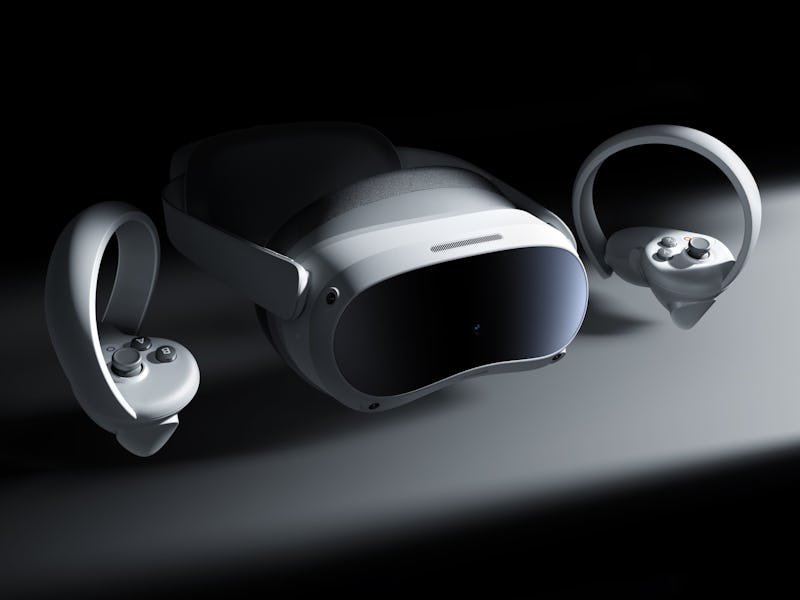Social Media Is Getting in the Way of Good, Honest VR
Pico might have delayed a launch in the U.S. because of the regulatory scrutiny of TikTok and parent company ByteDance.

Pico had promise. As one of the few virtual reality players with a sleek standalone headset and the ability to scale thanks to the backing of TikTok parent company ByteDance, it seemed like a real competitor to Meta’s budding VR empire. Now that competition might not happen because of Pico’s connection to social media.
The VR company teased a big announcement for this year’s Game Developers Conference on March 22, something many assumed would be the launch of its Pico 4 headset in the U.S. Strangely, no announcement came, and the reason, according to a short, on-the-ground report from The Verge, is TikTok’s hearing with Congress. Being associated with TikTok was bound to pose some problems for Pico at some point, but a possible hardware delay should be seen as confirmation that social media and VR do not mix.
Meta’s been through this
The excitement around Quest hardware has absolutely been hampered by Meta’s past mistakes.
Social media’s ability to curdle the excitement or viability of virtual reality is perhaps exemplified by Meta itself. The company rebranded with a focus on the metaverse but still hasn’t fully escaped its past mishandling of various issues. It’s not clear anyone is interested in spending time in a 3D virtual world, but they're exceptionally resistant to it because of Meta’s history — the Cambridge Analytica scandal, unknowing facilitation of genocide abroad, and more.
The team that works on Quest headsets might have nothing to do with Meta’s various social media platforms, but because people are mad about Instagram, they’re less interested in spending time in VR. The same problem appears to be playing out with Pico, TikTok, and ByteDance, this time with an even more political spin.
And it’s a shame because, for all intents and purposes, the Pico 4 is an impressive piece of hardware that surpasses the Quest 2 in several ways. The Pico 4 uses pancake lenses like Meta’s more expensive Quest Pro. It has higher resolution displays, more RAM, and a lighter and overall smaller form factor. It is, in many ways, what Meta is planning to release with the Quest 3 later this year, and it may have become available well in advance if Pico wasn’t owned by the same Chinese company as TikTok.
Risks by association
Concern over TikTok isn’t totally unfounded, of course. ByteDance reportedly planned to use the app to track the real-time location of specific U.S. citizens. Many reports claim that ByteDance calls the shots at TikTok and, as a Chinese company, is vulnerable to the whims of the Chinese government.
There’s a current of xenophobia that runs through most criticism of TikTok and ByteDance, one that sometimes hollows out the concerns U.S. officials have raised about both companies. But even setting that aside, ByteDance later admitted that it had found evidence TikTok had been used to track data from U.S. journalists, so it hasn’t helped matters either.
A bad mix
The Pico 4 should be a true competitor to the Quest 2.
Outside international politics, the problem is much more simple, social media and virtual reality are too sensitive to even be tangentially related to each other. Advertising is the backbone of social media platforms, and it relies on users making these platforms a valuable place to spend time (by producing free content) and the platforms themselves learning enough about their users to accurately target and sell advertising.
Virtual and augmented reality experiences invade your personal space to work well. This is hardware and software that your wear, that obstructs and alters your view of the world, and that tracks your movements to function. It shouldn’t be a surprise that mixing social media's privacy-violating implications with virtual reality's privacy-violating implications would produce a negative result.
Unfortunately, social media companies seem like the only businesses willing to develop these technologies, and until that changes, the bad vibes of Meta and the political stormy seas Pico has to navigate are the reality of the business.